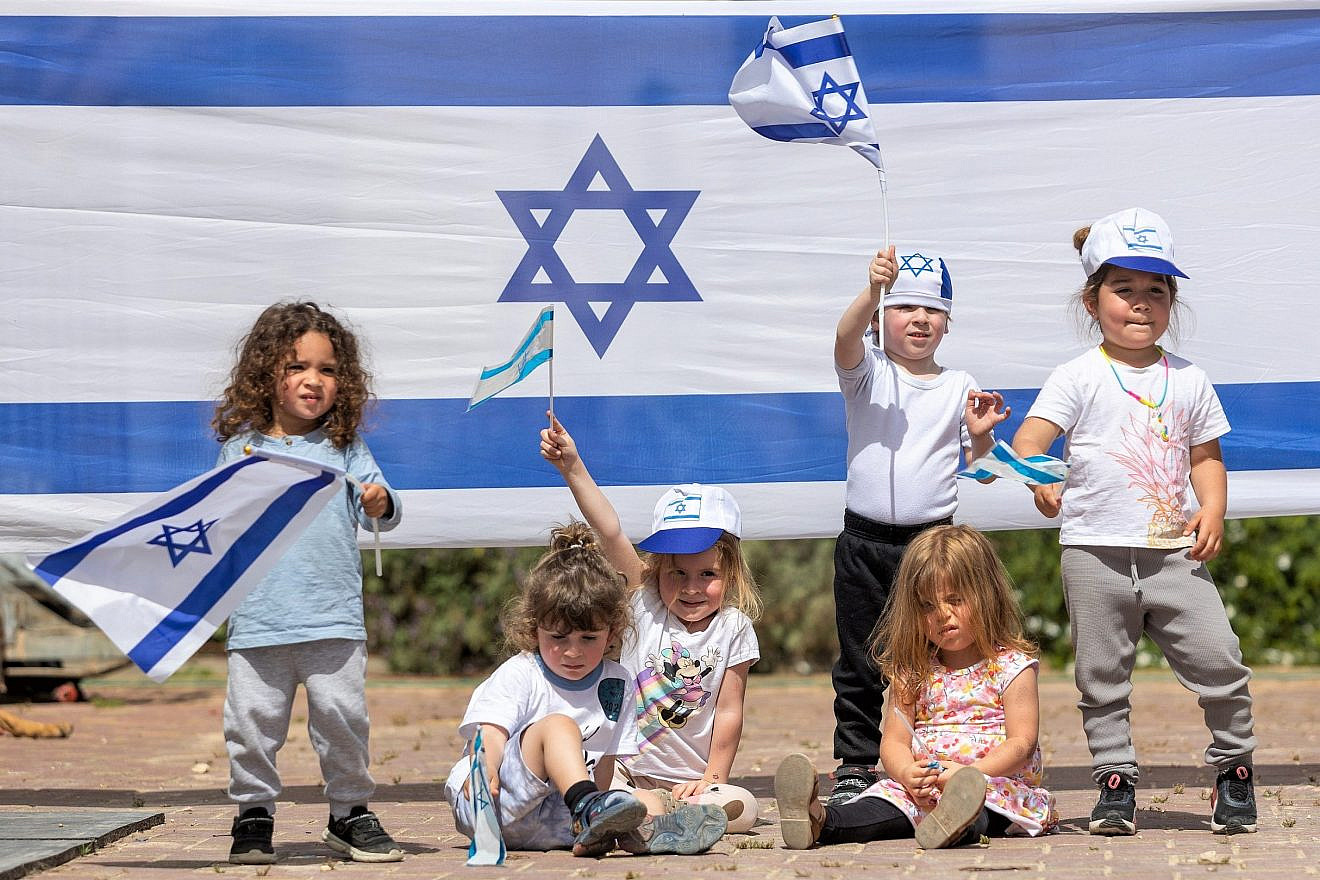Israel ushered in its 76th Independence Day on Monday night with muted celebrations amid the war against Hamas terrorists in the Gaza Strip.
The traditional torch-lighting ceremony marked the start of Independence Day and the end of Yom Hazikaron, Israel’s Memorial Day for the Fallen Soldiers and Victims of Terrorism. Due to the security situation, this year’s ceremony was filmed in advance without a live audience.
The event kicked off with the lighting of beacons in memory of the Israelis and foreign nationals who were murdered during the ongoing war. Torches were lit in Zikim, Sderot and other southern cities, as well as near Kibbutz Re’im, where 364 attendees of the Supernova music festival were murdered by Hamas on Oct. 7.
Forty-four people were chosen to light the 12 torches: The torch of the security forces, the torch of the emergency services, the torch of the rescuers, the torch of the immediate response squads, the torch of the public diplomacy front, the torch of the shield, the torch of hope, the torch of medicine and rehabilitation, the torch of victory of the spirit, the torch of giving, the torch of the Diaspora and the 12th torch that will burn without bearers to symbolize the hostages in Gaza.
As part of the ceremony, which was modified to reflect “the overall public atmosphere of bereavement, loss and deep pain of the people of Israel,” a video address by Israeli Prime Minister Benjamin Netanyahu was broadcast.
The celebratory nature of the main Independence Day event was further toned down at the request of family members of some of the 132 hostages still held captive by Hamas in Gaza.
In March, Transport Minister Miri Regev, who is tasked with organizing the national ceremonies, announced the cancelation of traditional fireworks shows and called on local and regional authorities to follow suit.
Independence Day will be observed with muted festivities throughout the country on Monday evening and during the day on Tuesday.
The Israeli Air Force flyover, which traditionally takes place on the day of Yom Haatzmaut, was canceled due to the military’s focus on the war.
Israel’s population has reached 9.9 million, an increase of 189,000 (1.9%) over 2023, according to data the Central Bureau of Statistics released last week ahead of Independence Day. The population is expected to hit the 10-million mark by the end of the year.
Netanyahu met on Sunday with the torchbearers and told them that just as Israel now faces a U.S. arms embargo amid the war against Hamas, so, too, did it when Arab armies tried to destroy the infant state in 1948.
“You represent the heroes of the spirit and of action among our people. … In the War of Independence [in 1948], we were the size of a grain of sand—600,000 people along the coast, with our backs to the sea, without weapons,” Netanyahu told the honorees.
“By the way, there was a U.S. embargo then, [we were] without means, and opposite us were five Arab armies—and we won. How did we win? With heroes of the spirit and of action. With the spirit of our people. That was our secret weapon, we have no other weapon. There are, but without this weapon, there is nothing. This is what you represent today,” added the premier.


























